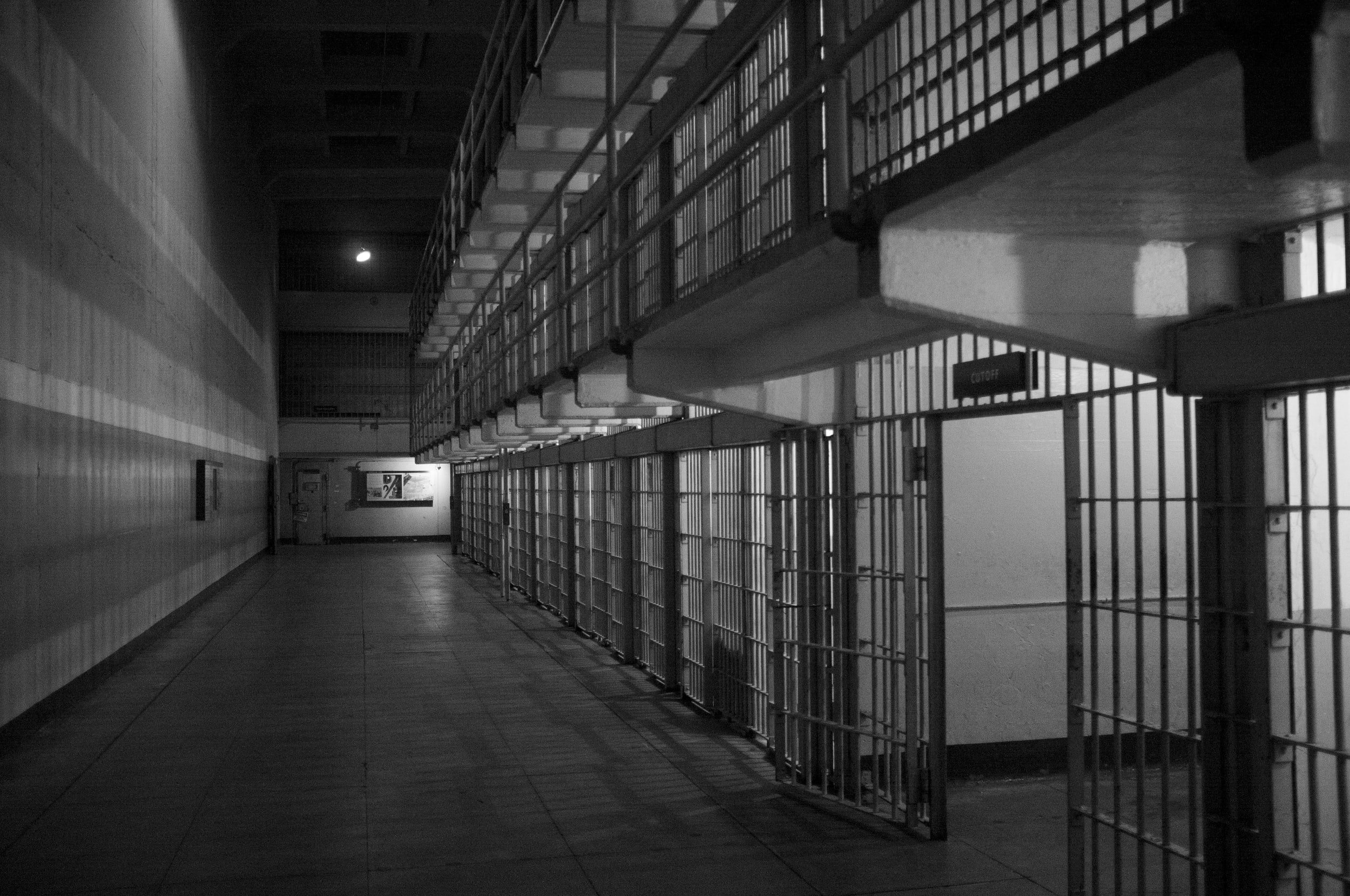Student Loan Forgiveness
April 4, 2021
There’s a lot of pushback against the idea of student loan forgiveness—in particular from my fellow Gen X’ers. And, I get it. I do. After all, how could it be fair for someone who worked his or her way through college, or who entered the job market immediately after high school, to be forced to bail out someone who spent six years partying at an expensive, resort-like college only to graduate with a C-minus in ancient Mongolian puppetry?
But my gut tells me that any initiative designed to break the stranglehold of financial institutions on the lower classes and release people from almost insurmountable debt would have to be a good thing for almost everyone—including those who never went to college or have already paid back their student loans. After all, if student loan forgiveness thwarts the plans of villains like Cruella DeVos to make permanent indentured servants out of any non-wealthy person who aspires to achieve a college degree, then that’s good enough for me!
But mostly, I haven’t really heard any good arguments AGAINST student loan debt forgiveness. The most common argument against it I hear from my GenX peers is, “But I paid off MY student loans!” But by that logic, we should NEVER make any improvements to anything, because it would automatically be unfair to those who were harmed by the previous status-quo. By that logic, we should just accept that all high school graduates of all subsequent generations should be forced to sign themselves up for 20 – 30 years of serfdom to the wealthy class if they want to have any kind of professional office-type job.
Liberals and liberal-leaning people often mock lower-income regressives who are tricked into voting against their own best interests because they think that’s the best way to keep tax dollars from the fictional “welfare queen.” But we’re just as quick to manufacture lazy, undeserving caricatures of our own, like the fictional college partier spending six years getting an impractical degree at an expensive college. In reality, anyone pursuing the ancient Mongolian puppetry academic path is most likely a trust-fund kid who doesn’t have or need student loans. Most people who take out student loans are 17- and 18-year-olds who have been led to believe that this is their best—and most responsible—track to a better future.
The high-school and college-age children of my Gen-X peers likely have the benefit of getting financial advice from parents and counselors who have navigated—and suffered under—student loan debt for much of their adult lives and who would advise against it. But that wasn’t the case for us when we entered college, and it wasn’t the same for our younger Millennial siblings, cousins, nieces and nephews.
I don’t know what laws/policies changed in the 1980s, but I feel like we in Gen X were the guinea pigs for the student loan debt scam. I never heard of any previous generations entering their professional careers so far behind financially. We were 17- and 18-year-olds—often some of the first in our families to go to college—assured by our teachers and counselors that student loans would be a wise investment in our futures. I distinctly remember a guidance counselor addressing my class in my sophomore or junior year of high school telling us not to worry about how expensive a college was—grants and loans could make up the rest of what our parents couldn’t afford. When I had a one-on-one with a counselor during my senior year, debt/finances weren’t mentioned at all—he merely asked me where I had applied to college, took a perfunctory look at my transcript, and stated, “You’ll get in.”
To a certain degree, we Gen X’ers set the debt chain in motion that would make things even worse for the millennial generation. Once more and more people in our generation started getting college degrees, these degrees started to become almost as ubiquitous as high school diplomas, which meant that most employers started REQUIRING college degrees for office jobs—even when those degrees had little or nothing to do with the available positions. The fact that nearly everyone had a basic four-year-degree then compelled students who wanted to set themselves apart in the job market to get degrees from more prominent (i.e. expensive) schools, and/or to pursue advanced degrees, all while the costs of higher education skyrocketed. As a Gen X’er, I struggled for years to pay back my student loans, but I know the debt I took on was minimal compared to the student loan debt of people 10 – 15 years younger, for whom college degrees had become a necessary step to any kind of professional career.
Most everyone understands that tax giveaways to the rich and bailouts for wealthy corporations never trickle down to the rest of us. For decades, we’ve witnessed corporations receiving bailouts only to reward their shareholders and then lay off employees anyway. But every time this kind of bailout is on the table, we only muster tepid disagreement. We just accept that it’s inevitable. We reserve our REAL outrage for programs—like student loan forgiveness—that would help people more like ourselves and pump money back into the economy in the process.
There seems to be a kind of natural—and self-defeating—tendency to want to fight against anything that would help those struggling up the ladder one rung below us. The most adamant arguments against raising the minimum wage seem to come from those making just slightly ABOVE the minimum wage who are appalled at the thought of fast-food/retail workers making as much as they do, focusing laser-like on the fear that the price of their Big Macs will go up, rather than the fact that their wages will almost certainly rise too. Similarly, Gen X’ers who have paid back their student loans—people who barely raise an eyebrow when wealthy corporations receive bailouts—seem to be the most vocal critics of the student loan forgiveness programs.
By focusing on how “unfair” these bailouts would be, people overlook how the financial emancipation of a huge chunk of our society would mean that more money would be pumped back into the economy. People who didn’t go to college themselves—many contractors, landscapers, roofers, painters, etc., would have more business as more people could finally go forward with the home improvement projects they’ve been putting off due to a lack of disposable income. People who earn commissions selling cars, furniture, etc., will see an uptick in their earnings. More people would go out to dinner, go to stores, etc. more often. Small business then would be able to invest in more professional services.
Online commenters opposing student debt forgiveness act as if these bailouts would only help the most irresponsible and undeserving. They often then joke about a dreaded slippery slope of bailouts, as if these things would be ridiculous: “What about credit card debt forgiveness? Har-de-har-har!” “What about mortgage forgiveness?”
And to that, I say…well—why not? Okay, to answer my own question, I realize that the government is not supposed to function as an Oprah-like charity: “You get a bailout! And you get a bailout!” And as much as I hate that the Republicans always loot the treasury for their uber-wealthy donors and then demand austerity from Democrats, I DO understand the concept that if the country keeps going into debt, that’s going to bite us in the ass at some point. I know we can’t just keep printing money. So my “why not” question isn’t necessarily, “why aren’t multiple bailout plans practical things for us to consider right now?” There probably are other programs that might do a better job of helping more Americans— a green infrastructure program that brought good-paying professional and construction jobs, a higher minimum wage to boost wages all around, universal day care, a break-up of monopolies to improve competition (in terms of products, and more companies competing for talent, resulting in higher wages). Right now I’m being more theoretical. My “why not” question is really more, “why do people think that this is so ridiculous that it should be considered a joke?” (Note, I would hope that any bail-out would also include regulations to curb predatory lending so that the cycle of debt could be broken and we wouldn’t have to consider bail-outs every few years.)
I mean, the objections to bail-outs for regular people always preemptively dismiss the would-be recipients as unworthy before even trying to determine if such a program could be financially do-able. During this pandemic, the country’s 600 billionaires have increased their net worth by nearly $1 trillion. ONE TRILLION! If we could recoup half of that, we would have nearly $500 billion to help working-class people who have been suffering, and the billionaires wouldn’t experience any kind of lower quality of life whatsoever. I mean, they’re already billionaires! Do we really believe that any of these billionaires rolled up their sleeves and worked harder during the pandemic? Do they work at all at that level? Of course not. Our economy is set up as a machine that funnels money from the working class to the uber-wealthy, and that machine kicks into overdrive during times of economic crisis.
Is it overly simplistic to imagine taking money from any of these sources to free working Americans from the crippling debt that has been forced on them? Maybe. Maybe not. But if we as a society preemptively vilify those who would benefit from this debt emancipation as lazy or otherwise unworthy, then we don’t even start looking for any means to pay for it. We essentially do the work of our country’s oligarchs for them and fight to protect their abstract assets at the expense of those who are one or two rungs lower on the financial stability ladder than we are.
Much like how regressive voters have been trained to demonize the fictional Welfare Queen character, we automatically assume that the typical recipient of a credit card bailout would be the financially irresponsible, materialistic person who makes a decent wage, but lives beyond it, splurging on fancy vacations, designer clothes, shoes and handbags, high-tech electronics and gadgets, etc. And, to be sure, there are some people who do fit that description, but I would think that any program of credit card forgiveness could and should weed out those people. It wouldn’t be too difficult.
But what about the people who right now are racking up credit card debt because the government has been horribly negligent in providing aid during this pandemic? What about the people who are right now entering into a high-interest bargain with predatory credit card companies because it’s the only way they can put food on the table? How many service/tip-based workers are unemployed or underemployed now? Even after the pandemic, how many more years will it take for them to get back to some kind of living wage, and how deep in credit card debt are they likely to be at that point?
And even before the pandemic, what about all of those people working 50+ hours a week at minimum-wage or just-above minimum-wage jobs who still couldn’t make ends meet, since minimum-wage today basically is about 1/3 of the amount it would be if it had risen to reflect productivity? How many people are caught in the vicious cycle of trying to chip away a little at their credit card debt, only to have to tap into credit when the (inevitable) unexpected expense comes up because they have no savings because they’ve been spending so much money every month on interest? I’ve been there.
Would it be so wrong for tax dollars help our fellow Americans break the cycle of dependence on wealthy financial institutions?
And why would it be so frivolous or wrong to help out homeowners (using the term “owners” loosely) with mortgages? The dismissive way people write off the possibility of helping homeowners seems to imagine frivolous, irresponsible people who took on mortgages for much larger, newer, fancier houses than they could afford. The sub-prime mortgage crisis and subsequent economic crisis was caused by a few of those people, to be sure. But, the thing is, the market price is basically set by those of us willing to take on the most debt and live in the worst debt-to-income ratio.
Having just bought my first house myself within the past year and a half, I understand better how the whole mortgage industry is one of the most efficient channels that funnel money from workers to the uber-wealthy. I’d love to see more restrictions on the amounts that people could borrow. Libertarians may object, saying that assuming massive debt should be a personal choice, but that’s not really how it works. If I’m competing for a house with someone who makes less than I do, but who is willing to take on more debt, then that sets the price of the house, and if I want to enter into home ownership, I have to strike a bargain with a mortgage company that basically leaves me an indentured servant for 30 years.
I’d be in favor of any laws that curbed the ability of mortgage companies to act as predatory lenders and inflate the price of homes to funnel money into the pockets of the top 1% just because the rest of us need a place to live—even if that lowered the property value of the house I recently bought. But then, if that happened, would it be so wrong for the government, in conjunction with these new mortgage laws, to offer some kind of bail-out to compensate people like me for our property value depreciation?
Would that really be so unfair? Especially when a lot of people—like me—couldn’t enter into any kind of mortgage deal until we had paid our student loans and then saved for a down payment, meaning that we had to postpone home ownership until our 40s. In the original American Dream—back when America was “great,” young people could purchase homes in their 20s, when they were at the beginning of their careers and could expect to see their incomes grow exponentially over the next few decades, which meant that if the monthly mortgage payment they took on when they first bought their house was a big chunk of their income at the time, it would become more and more manageable as time went on, and they could even realistically pay it off early. Not so for people like me who take out their first mortgage in their 40s, when they’re likely already at the pinnacle of their careers. Maybe they have one more big promotion ahead of them, but most likely their income has plateaued, so if the monthly mortgage payment is a struggle, it will likely remain a struggle until the day they die. And that’s probably the BEST financial option for someone in those circumstances, compared to continuing to be at the mercy of the rental market with no chance of ever having any assets.
And if such a mortgage bail-out were given, it stands within reason that that money would again be pumped right back into the economy. Maybe some of us would use it to make a payment to get us out of mortgage indentured servitude a little early. And others would pump money into home improvements to return their property value to what it was previously, while improving their quality of life in the process. And others would probably do some combination of the above. All responsible things.
No matter what, this would certainly help pump money back into the economy much better than another tax giveaway for the uber-wealthy and large corporations. We know this in our guts. And yet many still loudly protest. Again, my point isn’t that we necessarily SHOULD do these things now (other than the student loan bail-out, which is actually on the table). My point is that our knee-jerk reaction to any bail-out for our economic peers shouldn’t be to vilify them as irresponsible moochers. In doing so, we’re not even waiting for a “Welfare Queen” caricature to be foisted on us before we create one ourselves.
I guess part of this might be because to accept that we—or people like us—should be worthy of any kind of bail-out is to in some way acknowledge that we have been screwed over to some degree. “Victim” seems like such a self-pitying word, and I think most of my Gen-X peers would oppose applying that to ourselves. Most of us have managed to have relatively good, comfortable lives, despite the debts we’ve paid, and we’re understandably grateful. But the truth is, if Reaganomics and the whole trickle-down policy hadn’t been implemented, many of us might have the economic security to be planning nice, fun retirements full of relaxation and travel right now, instead of worrying about how we’re going to fight age discrimination and stay competitive in the job market as we enter our 70s and 80s because we’ll still NEED a full salary then to keep making high mortgage payments.
If bail-outs are deemed to be a practical way to infuse money into the working-class and create more of a trickle-UP economy, I’m not going to oppose them because I buy into a caricature of an undeserving recipient. If we oppose any help to our fellow Americans because it won’t directly affect US, then we’re promoting a cycle in which nothing that would in fact help us specifically will ever be approved. Student loan forgiveness sounds like a great first step to breaking the cycle of debt that still hurts us all—even if we’ve already paid off our own debts.






